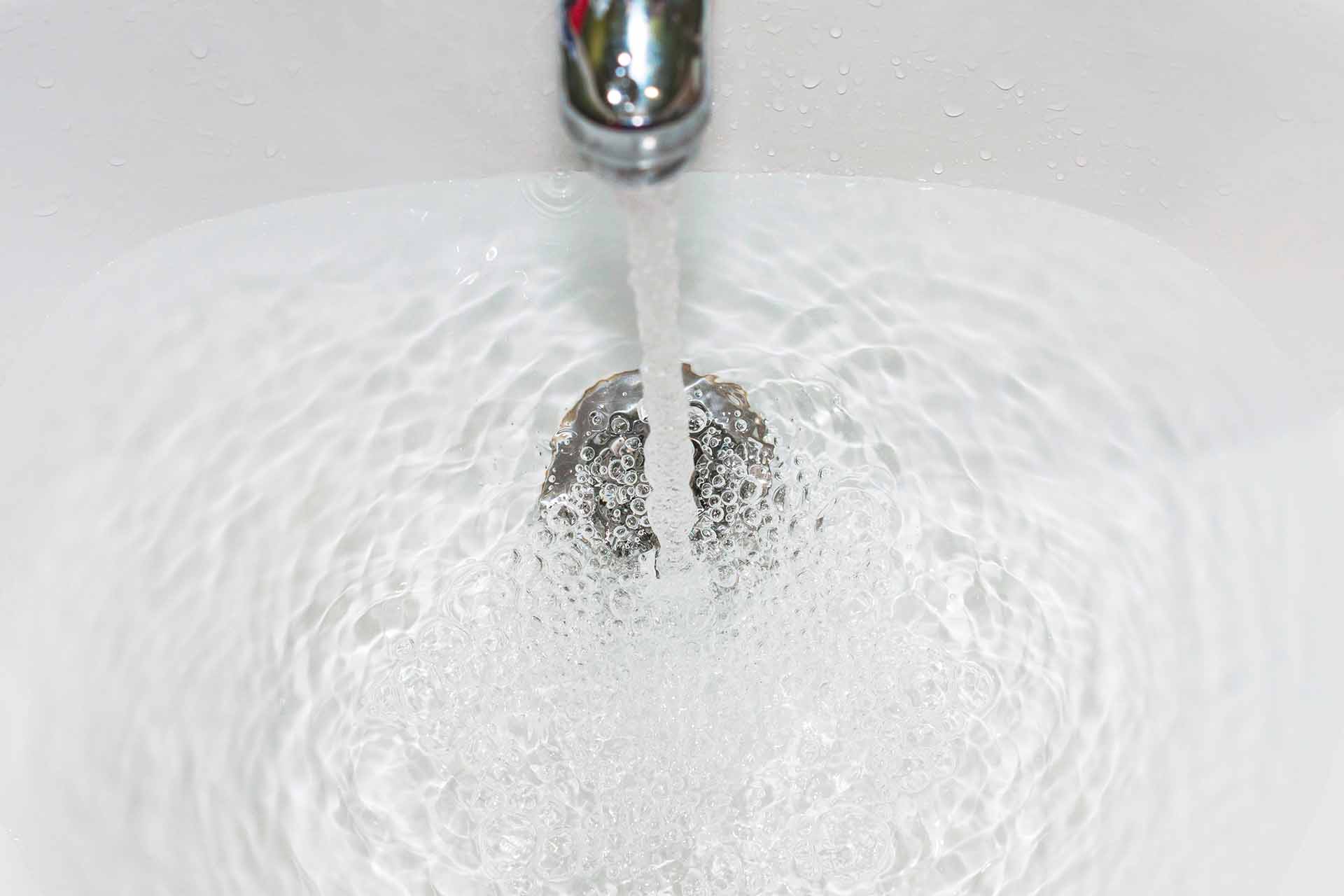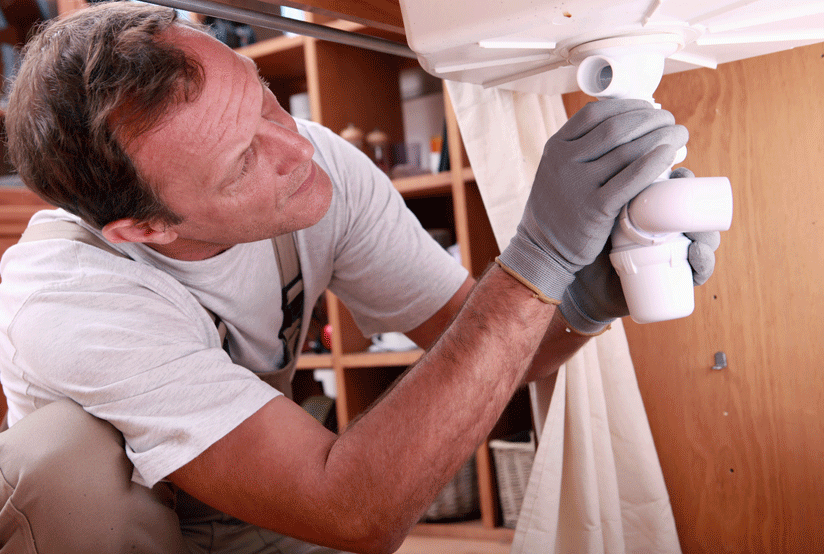Quick Ways To Fix A Slow-Draining Sink
Quick Ways To Fix A Slow-Draining Sink
Blog Article
The writer is making several great observations on the subject of How to Fix a Slow Draining Sink overall in this great article below.

Intro
We've all existed: You're cleaning your teeth or cleaning your hands, and you notice the water pooling in the sink. As opposed to quickly swirling down the drain, it sticks around, turning your once-refreshing morning routine right into a mini overload scene. A slow-draining sink isn't just frustrating; it's frequently an indicator of bigger plumbing problems hiding under the surface. The good news is that a lot of slow-draining sinks can be taken care of with a little expertise, a couple of standard devices, and some perseverance. All set to tackle this task head-on? Allow's roll up our sleeves and dive right in.
Recognizing the Causes of a Slow-Draining Sink
Prior to you begin poking around in your pipelines, it assists to understand what may be causing the downturn. Comprehending the origin makes it less complicated to choose the ideal repair.
Tools and Materials You'll Require
The right devices make all the distinction. The good news is, you will not need a fully equipped plumbing professional's van to finish the job.
Step-by-Step Guide to Dealing With a Slow-Draining Sink
Now, allow's enter into the nitty-gritty. This detailed procedure will certainly lead you with simple methods to restore your sink's drainage.
Step 1: Eliminate and Tidy the Stopper
Commonly, the stopper (that small plug you push down to block water) is the very first perpetrator. Remove it carefully and clean off any hair or substance caught around its base. Wash it extensively before placing it back in position.
Action 2: Utilize a Bettor to Dislodge Debris
Got that plunger all set? Position it over the drain and offer it a couple of company pumps. The concept is to create suction that can loosen up any kind of obstruction. If you see littles debris drifting up, you're on the ideal track.
Step 3: Try a Drainpipe Serpent or Cord Hanger
If the plunger doesn't work, it's time to draw out the drain serpent. Carefully feed it right into the drain and twist as you go. You could really feel some resistance-- that's most likely the blockage. Maintain turning and pulling up until you remove the blockage. If you don't have a drainpipe snake, a corrected the alignment of cable hanger can operate in a pinch.
Step 4: Apply a Do It Yourself Drain Cleaner
A natural cleaner made from cooking soft drink and vinegar can break down residual gunk. Put half a mug of baking soft drink right into the drainpipe, complied with by half a mug of vinegar. Allow it fizz for around 15 minutes, then flush with warm water. This chain reaction frequently does wonders for minor blockages.
Step 5: Rebuild and Evaluate the Sink
Put whatever back with each other and run the faucet. Does the water now swirl down the tubes at a respectable rate? If yes, provide yourself a pat on the back. Otherwise, don't misery-- there are still a few even more tricks up your sleeve.
Important Devices for Do It Yourself Fixes
A plunger is your go-to beginning point. A tiny, sink-sized plunger develops suction that can dislodge minor obstructions. For more consistent clogs, a drain snake (often called a plumbing's auger) functions wonders. A pair of gloves, a flashlight, and perhaps a set of safety safety glasses are also useful.
Suggested Cleansing Solutions
Light recipe soap and hot water can assist break down greasy build-up. A mixture of cooking soft drink and vinegar is a reliable natural remedy, and chemical cleansers provide an even more eco-friendly method. Maintain chemical drain cleansers as a last hope, as they can be rough on your pipes.
Common Perpetrators Behind Slow Drain
So, what's clogging points up? Commonly, it's a combination of day-to-day debris-- assume hair, soap residue, toothpaste deposit, and leftover food bits. Over time, these tiny bits accumulate and cling to the pipeline walls, progressively narrowing the passage and making it harder for water to go through. In some cases, mineral deposits from tough water can also contribute to the crud, creating the excellent tornado for stubborn blockages.
When is it Time to Act?
If you notice the water draining pipes slower than typical, it's a good idea to intervene faster as opposed to later on. Waiting also long could lead to complete blockages, unpleasant smells, and even pipeline damage. If the water takes more than a few secs to clear out after switching off the tap, consider it a red flag and prepare to put on your DIY hat.
Safety First: Precautions and Prep work
Before you launch into unclogging setting, think about safety. You're handling potentially unclean water and particles, so slip on a set of gloves. If you're making use of chemical cleaners, guarantee the area is well-ventilated and comply with the guidelines on the label.
Safety Gear and Work Space Configuration
Lay down some old towels or dustcloths around the sink location to capture dashes. Clear away any products that might enter your way, like soap dispensers or toothbrush owners. See to it you have great lights-- get hold of a flashlight if required.
Alternate Approaches for Stubborn Clogs
Not all clogs are created equivalent. If your sink still rejects to cooperate, think about these alternate options.
Sodium Bicarbonate and Vinegar Technique
We currently discussed this, however it deserves noting once again. This gentle, green method is safer than chemical cleaners and frequently quite effective.
Chemical Drain Cleaners
Enzyme-based cleaners use all-natural germs to digest organic matter. They're an outstanding choice if you're aiming to prevent severe chemicals. Just bear in mind, they may take a bit longer to function their magic.
Chemical Drain Cleaning Company: Pros and Cons
Chemical cleaners can blast through hard clogs quickly, but they're not without drawbacks. They can generate warm and fumes, damage pipes if made use of exceedingly, and position ecological dangers. Use them moderately, and constantly comply with the instructions very carefully.
Preventive Measures to Maintain Your Sink Flowing
Avoidance is the very best remedy. By embracing a couple of simple practices, you can keep your sink from decreasing to begin with.
Normal Cleaning Up Practices
Clean down the sink container and fixture location consistently. Get rid of hair or food fragments before they have an opportunity to wash down the drainpipe.
Preventing Unsafe Compounds Away
Think twice prior to unloading coffee grounds, oil, or fibrous vegetable scraps down the sink. These perpetrators cling to pipeline walls, producing obstructions gradually.
Routine Maintenance Checks
Set up a fast monthly assessment. Run hot water through the sink for a couple of minutes, paying attention to the circulation. If it seems sluggish, act quick before it ends up being a full-blown blockage.
When to Call an Expert Plumbing Technician
Occasionally, despite exactly how hard you attempt, that clog simply will not move. That's when it's time to bring in the pros.
Indicators That Indicate a Much More Serious Concern
If your sink drains gradually in spite of numerous efforts, or if you notice water backing up in other components (like your shower or bathroom), you might have a much more significant pipes issue prowling much deeper in the system.
Stabilizing Do It Yourself Initiatives with Expert Help
While DIY can save you money and supply a feeling of accomplishment, there's no pity in calling a professional. An expert plumbing professional can evaluate your whole pipes setup, making sure there's no underlying damage or long-term trouble that can cost you a lot more later on.
Contrasting Costs and Long-Term Solutions
Prior to deciding, think about the big picture. An inexpensive, quick fix may solve the problem briefly, but buying an extra permanent option can save you cash and stress in the long run.
Evaluating the Costs of DIY vs. Professional Fixes
DIY fixes often set you back little bit greater than the cost of a bettor or a container of baking soft drink. Expert services, on the other hand, come with a cost however may protect against repetitive issues and pricey fixings later.
Investing in Quality Fixtures and Upgrades
If your sink's layout contributes to frequent obstructions, it might be worth updating to higher-quality fixtures or changing the plumbing design. Consider this an investment in your house's functionality and convenience.
Conclusion
A slow-draining sink can seem like a small irritation, but it's usually an indicator that your plumbing requires a little tender loving care. By comprehending the root causes, employing the right devices and methods, and dedicating to simple safety nets, you can maintain your sink flowing freely. And when all else stops working, never ever hesitate to employ a professional-- your home's plumbing is worth the investment in care and upkeep.
Three Common Ways to Fix a Slow Drain
Baking Soda Method
Boil a full pot of water. Measure out cup of baking soda and pour it down the drain. Then take cup of the magical cleansing substance known as white vinegar and drop that down there too. Allow the mixture to fizz in the drain for five minutes as the vinegar and baking soda combine. Now dump in that whole pot of boiling water. This combination of cleaning substances should clear out anything that is causing your sink to drain slowly. If it doesn t...
Zip-It
If the baking soda method doesn t clear out your drain, it may be because a significant amount of hair and/or other debris has collected there and you need to remove it. Purchase a Zip-It tool at any home improvement or hardware store and insert it into your drain. It will catch any collected hair or debris that s blocking the flow of water. Pull it out. If it s got a big clump of hair, etc. on the end, you ve probably got your culprit.
Drain Cleaner
If these methods don t work, there is the standard drain cleaner that you can also buy in a hardware store or even your local grocery store. It s better if you can use a household solution, but these drain cleaners often work in a pinch. They re very simple to use. You generally just dump them in your drain and wait. If even this method is not effective, it may be time to call the plumber.
https://www.mrrooter.com/oneida/about-us/blog/2017/july/three-common-ways-to-fix-a-slow-drain/

I'm very inquisitive about 7 Ways To Fix A Slow-Draining Sink Before You Call A Plumber and I really hope you appreciated the entire page. Liked our write-up? Please share it. Help other people locate it. I praise you for being here. Please check our site back soon.
Schedule Service Pickup Report this page